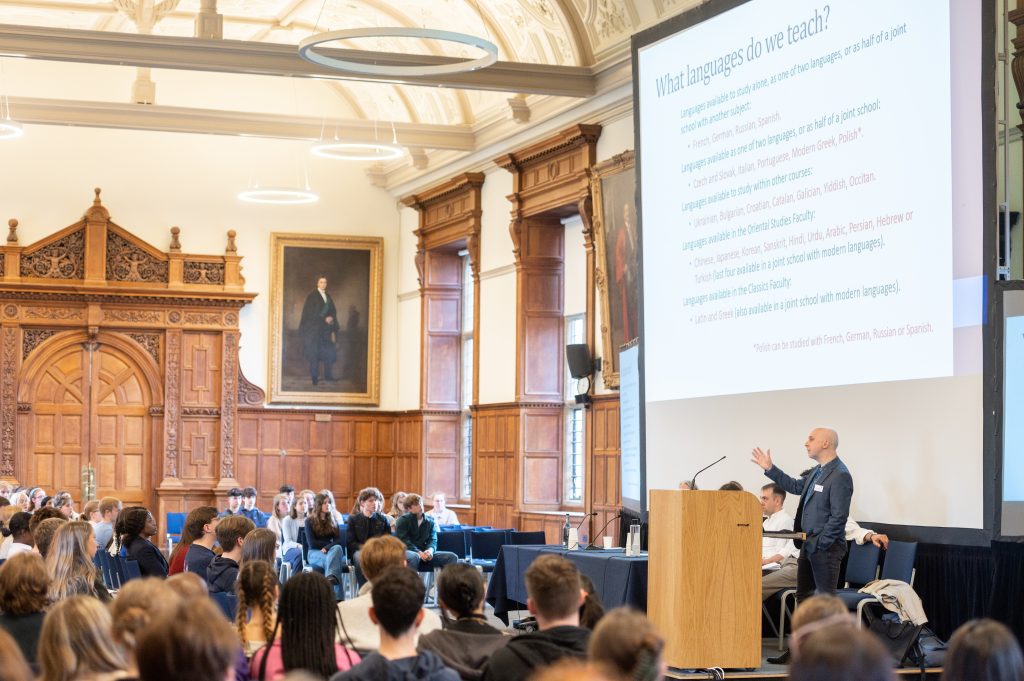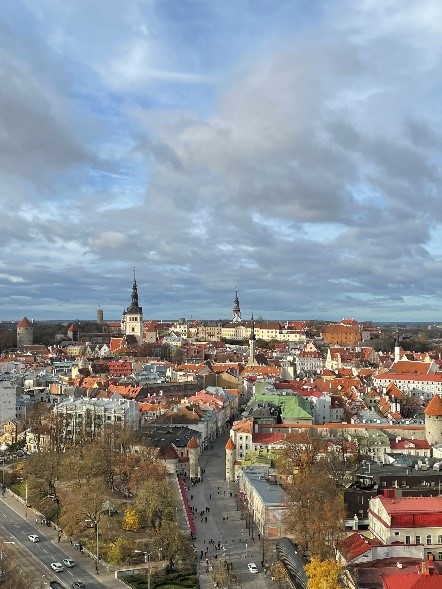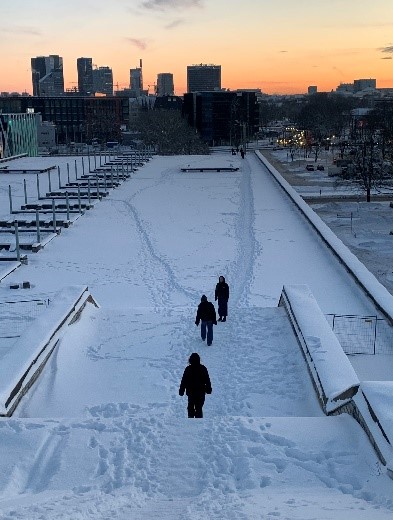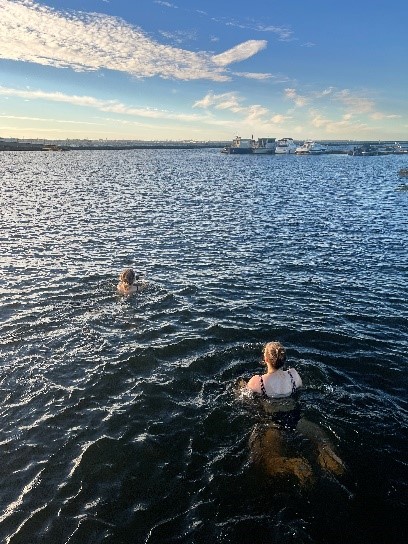On the blog this week, first-year student ambassador, Laurence, describes his experience of attending our Modern Languages Open Day in 2022, and how it led him to where he is today.
I feel so grateful to be where I am today, a student of Philosophy and French at St John’s College. My journey into university language study began at the Faculty Open Day in May of 2022, when I was in Year 12. A couple of months prior, I had woken up one day and decided that I could not graduate with a law degree at 21, start training for the world of work, and never broaden my horizons beyond that. French was my favourite subject at school, and I had a passion for literature and culture as well as a budding desire to travel. I switched my application preparation towards languages, and the Open Day was my first port of call.
As an Oxford Bursary recipient from a state comprehensive in Coventry, I remember feeling awe when I arrived with my mum at the Exam Schools, where we listened to a range of different talks. It was refreshing to talk to other young people who had a passion for languages: MFL learning in my school had suffered from a chronic lack of interest. I particularly enjoyed the variety of sessions at the Open Day, from talks on French specifically, linguistics, and Italian, another language I was considering. Talks from tutors were highly informative regarding the literature/language balance as well as studying a language with philosophy, with personal touches about their own research interests that could not be so easily gleaned from the university website. I loved the excitement in the atmosphere around the Open Day, even the sun was out on the High Street!
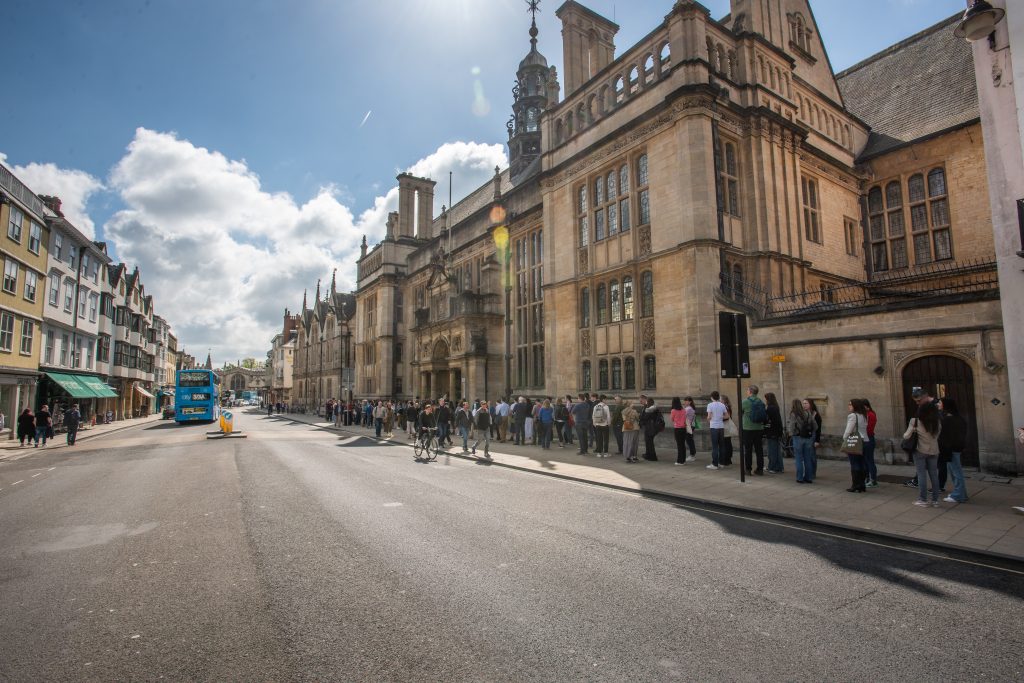
Photo by John Cairns
I decided that a languages degree was for me, and after further discussions with ambassadors (French and Philosophy is a great combination, they said), we headed home. I remember on the train we even met a woman whose daughter had just graduated in French, it seemed like a sign! I would certainly say that the Open Day stoked my interest in languages further and convinced me, through the emphasis on literature and culture as well as the sheer range of degree options available, that it was a better option than Cambridge or any other university.
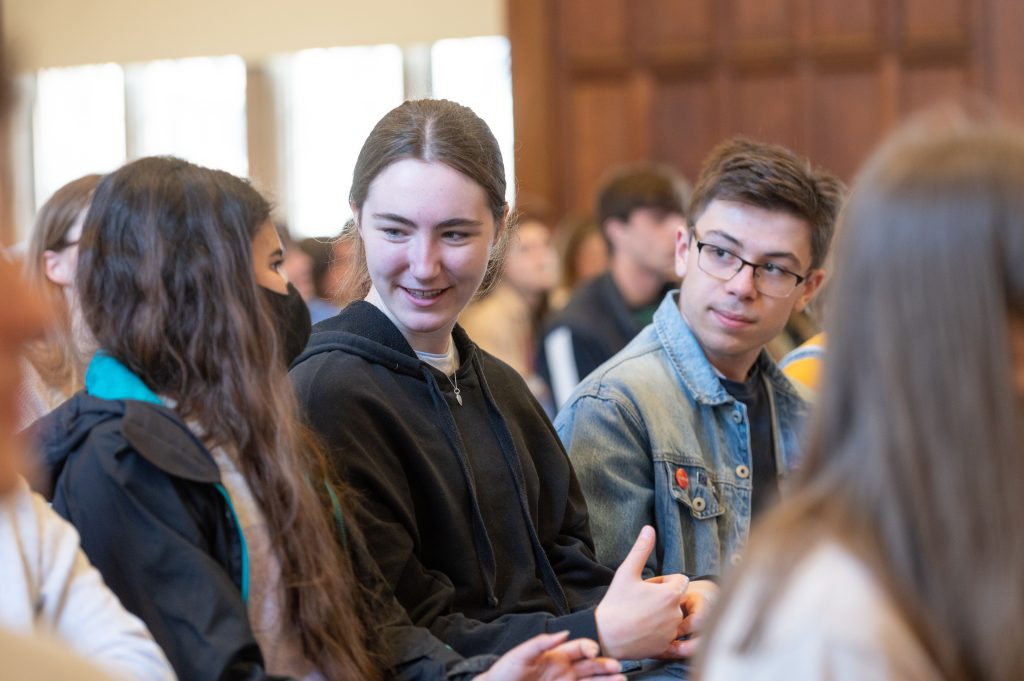
Photo by John Cairns
I have now finished two terms as a student here, and the experience has been everything that the Open Day promised, and more. I believe that the tutorial system is especially well adapted for subjects like English and languages because both tutor and student can pore over the text together. I think the Faculty does well at advertising this as what sets Oxford apart from other universities.
I have enjoyed much of the early modern content, including Montaigne and Racine, which may be the focus of my Authors Paper next year – although with the input of the philosophy side, Diderot and Pascal also sound tempting. I’m also excited to look into potential linguistics or cinema papers later in my degree. The language side of the degree has also been engaging: the expertise of my native speaker teachers has shown me a new way to reach fluency beyond learning cast iron grammar rules, namely a sensitivity to context, culture, and idiom.
I feel like I have personally travelled a long way since the Open Day, now a languages ambassador myself. Grateful for the opportunity to help others to discover languages too, getting to give back through this outreach work is the greatest privilege.
****
You can still sign up to attend our Open Day on Saturday 11 May! The programme and booking link can be found here. The deadline to register your place is 8 May – don’t miss out!


